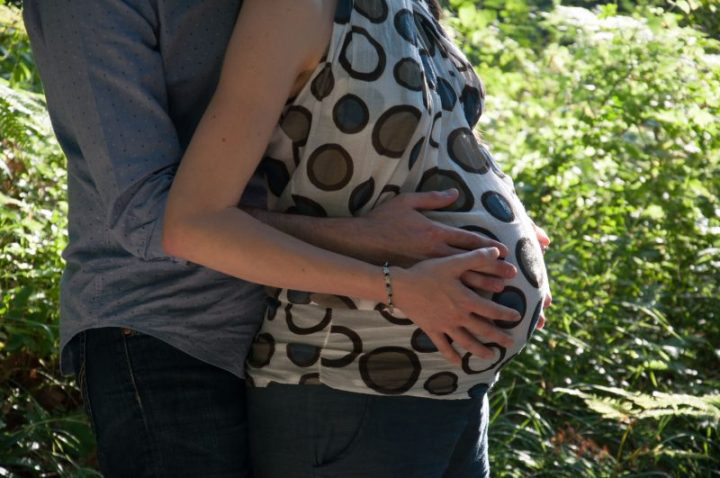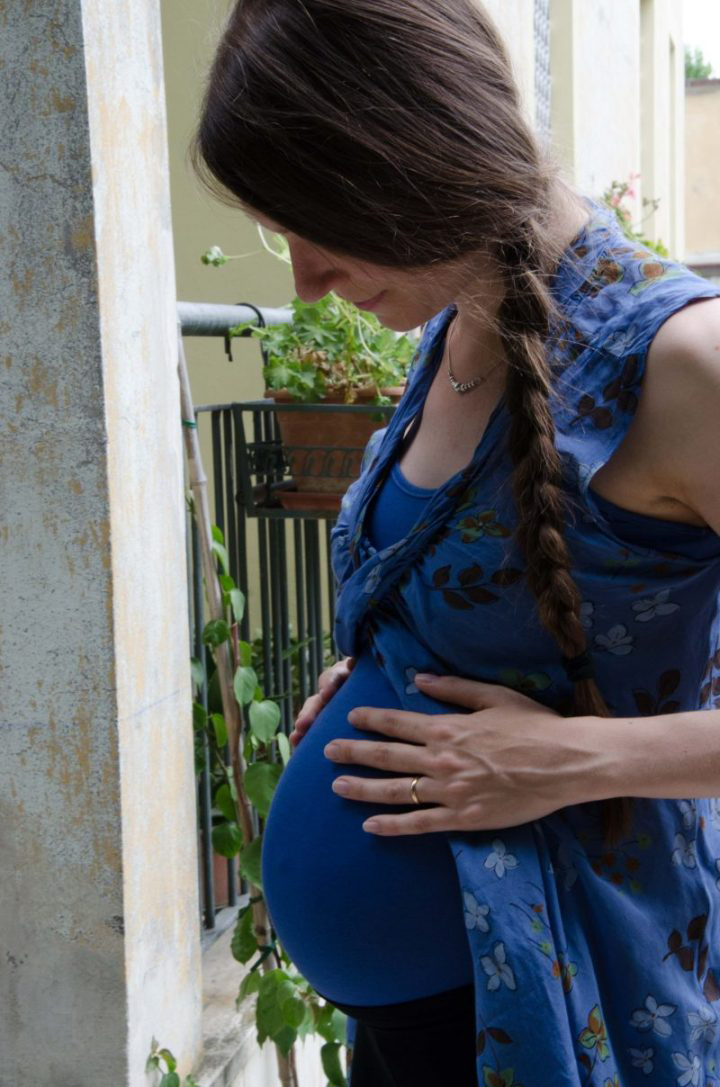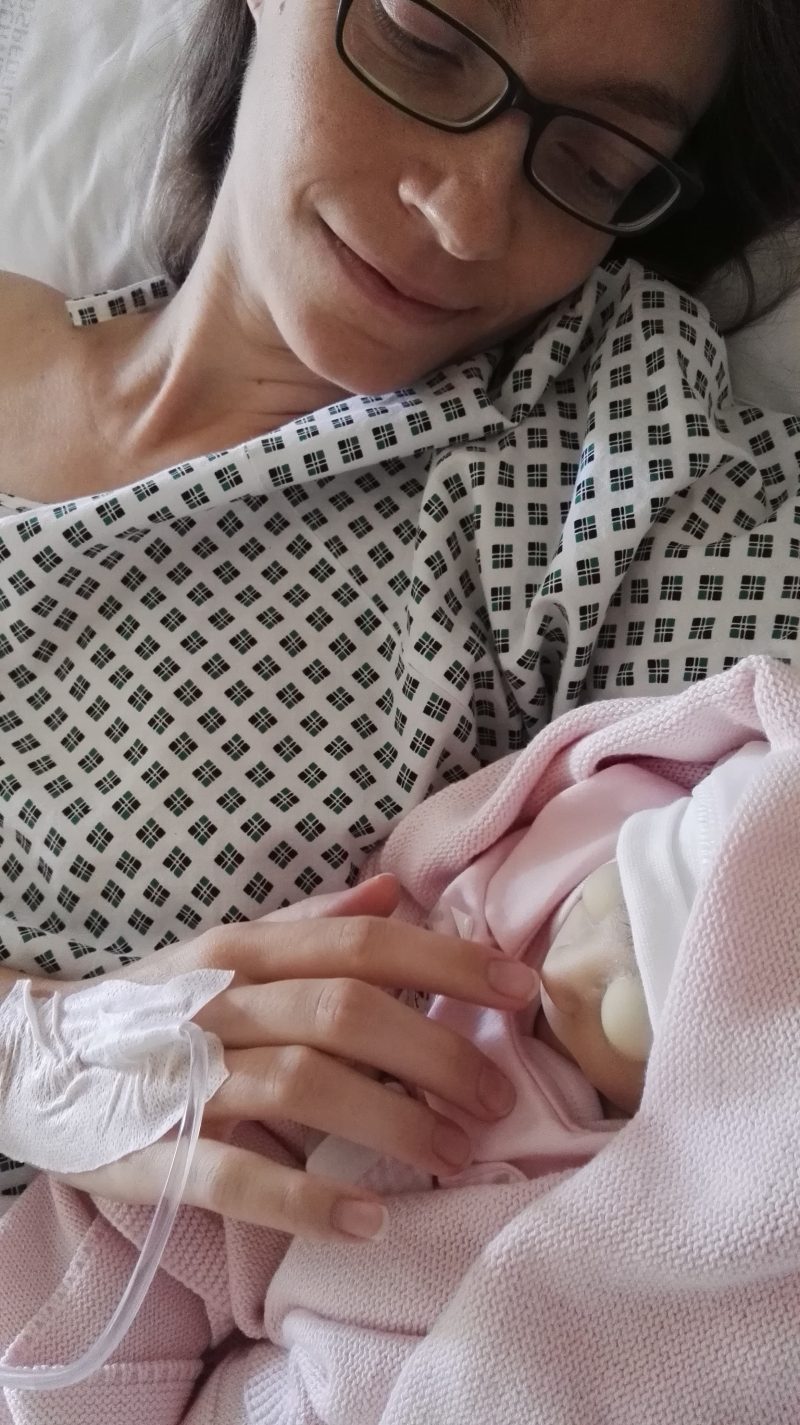Elena and Pietro’s daughter was anencephalic, but her short life was full of meaning.
Lenten Campaign 2025
This content is free of charge, as are all our articles.
Support us with a donation that is tax-deductible and enable us to continue to reach millions of readers.
I am very grateful to have met the family of Elena and Pietro, who have been called to bear witness to the strange wonders of God. Their first daughter, Ester, was diagnosed with anencephaly; she was with them for nine months in the womb, and then lived for an hour after birth. Pain and suffering are part of this story, but there’s also the miracle of a very small life that completely fulfilled its destiny.
Dear Elena, thank you for sharing with Aleteia the story of your daughter. When did you and your husband meet?
Pietro and I got engaged in 2009. We met at the Sant’Orsola hospital in Bologna where I worked in a research laboratory in the field of stem cells and my husband was specializing in cardiology. After 4 years, we got married. On the feast of St. Stephen (December 26) in 2015 we discovered that I was pregnant, and it was very exciting news.
Was it a big Christmas surprise?
We were very hopeful, and so we were very happy. I calmly started the routine exams and had my first ultrasound at the 11th week. It was February 17, 2016, and Pietro came with me. We exploded with amazement when we heard the heartbeat; immediately afterwards the doctor noticed some problems with the baby’s head, where there were too many empty spaces. The brain seemed not to be well developed. For us, it was like falling into a ravine. The doctor, to whom I am still thankful, was very gentle with us.
I remember the sadness when we came home from that visit. My mother was waiting for us at lunch to celebrate. I kept saying to myself: “I would never have thought this could happen. How is it possible?” My heart was full of love for the child in my belly, but my heart was also completely broken.
Did you have any doubts?
Theoretically, I’ve always been pro-life, I’m a volunteer at a pro-life pregnancy crisis center, but until you experience the vertigo affecting you personally, you don’t know if any different ideas might slip into in your head. The moment I got my first diagnosis, my thought was: if this child is so sick, we have that much more reason we have to help her. The only question was: how can we manage this situation?
You said “we.” Those who defend abortion often insist on the woman’s exclusive choice over her body and her choices. It seems to me that you have a different outlook: pregnancy is something in which the father is also a protagonist.
We have invoked the grace of the Sacrament of Marriage a great deal, and the Lord has poured it out on us. God’s grace sustained us for nine months through all the confusion and difficulty: “How are we going to manage?” Pietro and I managed to open up about our mutual pain, not to close ourselves in our wound. From the beginning—and one cannot take this for granted—what I felt as a mother, he also felt as a father, which was this: we have to welcome this child.

On the medical side, were you supported, or were there strong objections to such a complicated pregnancy?
The day after that first ultrasound, given the seriousness of the situation, we went to Bologna to have another one. The doctor who saw us that day confirmed the diagnosis that had already been reached. When my husband asked if it was possible to see the sex of the child, the doctor replied: “Why are you asking me that question? This is a lost pregnancy.” That day, I decided that I would never go to a gynecologist like that again.
What was your reaction to those words that so clearly devalued your child’s life?
We sat down in the waiting room, because I had to do more tests later, and I spontaneously opened my daily missal, to read the readings of the day. The first reading was Queen Esther’s prayer of entrustment: a mortal danger was looming over her, and she entrusted herself totally to God. The last passage of that reading made both me and Pietro shake, because it said: “Turn our mourning into joy and our sufferings into salvation.” At that moment we recognized it as a very clear sign from God. It was equally clear that if the child was a girl, she would be named Ester. From that day on, we asked in prayer to understand better and better how Ester was a gift for us.
God’s voice continued to speak to you …
Yes it did, in the midst of other voices, even of Christians, who insinuated that our suffering was a form of punishment: “But why should God send you such a trial, when you are such good people?” The texts we read in that waiting room had already given us our travel plan, because the Gospel passage also offered us immense consolation: it was the text from Matthew that says that no father gives his son a snake instead of a fish, nor much less can God can give bad things to his children.

God took you by the hand on a journey of medical exams, prognoses, decisions to be taken.
Yes, until the diagnosis was clear we had to see a lot of doctors, even a geneticist. We had one appointment on Good Friday; that doctor, respecting our choice of welcoming life, gave us the picture of the serious physical and cognitive disabilities that the child would have. It was our Good Friday. From the MRI it was clear that the baby completely lacked a brain: it was anencephalic, which meant sure incompatibility with life outside the womb. While leaving the door open to a miracle, that was the day when we know clearly what we had to face. Embracing my husband, I felt in my heart the certainty that God was faithful: He would be beside us and would leave us that child only for a little while, because He wanted her in Heaven with Him.
How was your relationship with Ester for those nine months?
She was moving around a lot, and it was a beautiful pregnancy for me. I felt so good that I worked until the eighth month. I wanted to take her around with me, because I wanted her to experience all the places I frequented. In July, a month before the birth, we went to the mountains for a few days; as parents, we wanted to spend a holiday with our daughter.
What was the birth like?
In general, it is not a given that anencephalic children are born alive. If they are born alive, they usually survive an hour, a few hours, or at most a day. My wish was that in the hospital we would be surrounded by people who could help us and would have the same clarity about the dignity of Ester’s life. As soon as I gave birth, like all mothers, I went to my room with my little girl. Ester lived for about an hour, and my husband and our closest relatives were present in the room with us. She was baptized, and she also received Confirmation. For us it was an hour of paradise. She had a penetrating look, present and perhaps even more aware than we were.
What did it feel like to look her in the eyes?
One of my greatest fears about birth was this: how would I see her? I was afraid of perceiving her as ugly. My anxiety about this was very strong. I wanted to look at her and love her, but I was afraid I couldn’t. And then she was born. They measured her, and immediately put her in my arms, and I was flooded with emotion. She was my daughter, and I saw her as I had wanted to.

An hour of life, and then goodbye. What was the funeral like?
We took advantage of every minute we had with her. In retrospect, that short time seems to open up like an accordion. Ester gave me an incredible peace: she came among us and then she immediately had the gift of eternal life. Of course, the days that followed were difficult; coming home with nothing to hold in my arms wasn’t easy. For the funeral, Pietro and I did everything together, and it even came sort of naturally; being together gave us the certainty that God’s grace was also with us.
I never expected to see a church full of people at the end of August, on Monday afternoon. It was a day of joy, when everything that the presence of Ester did blossomed: the relationships it created, and certain bonds of friendship that were renewed. Ester wasn’t only a hand that accompanied us on a journey of faith; she opened many doors, and windows … She worked a lot in the hearts of so many people who have heard her story. We will discover many other things she has done, besides those we already know. I’m sure of it.

Read more:
This baby only lived for an hour but changed countless lives

Read more:
This TV anchor is going to carry her anencephalic baby to term








